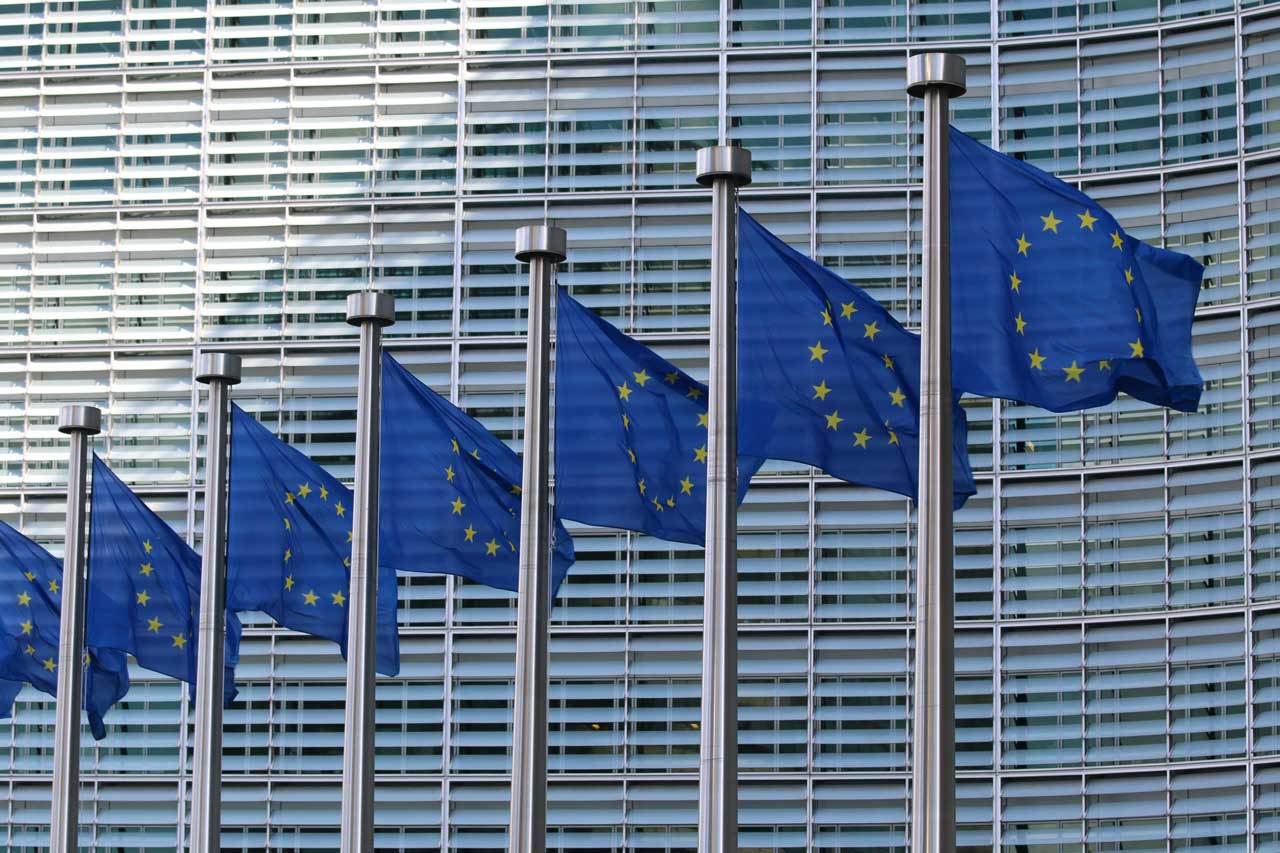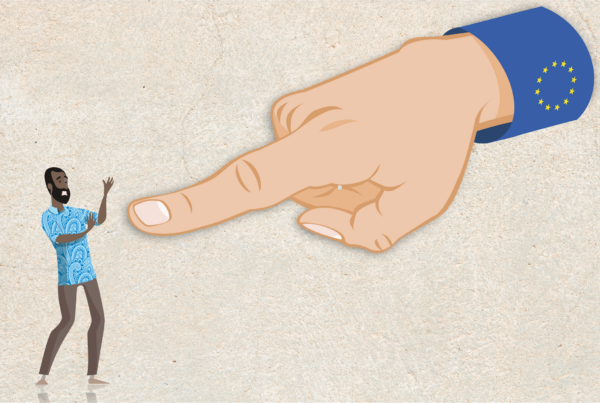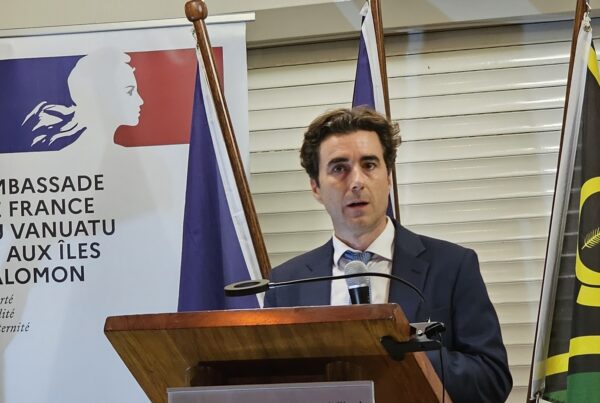By Martin St Hilaire, Chairman of the FCA
Vanuatu has been blacklisted again – this time by the EU, on a list with Fiji and Marshall Islands because we did not deliver the changes demanded by the EU in time.
Placing Vanuatu on the black list is a politically driven, self-centred move by the European Union without any consideration for the uniqueness or specific circumstances of Vanuatu. The EU black list from the outside looks to be nothing more than a bullying tactic.
All international wire transfers are already individually scrutinized, this has been the practice for several years. The black listing in itself will not likely have a big impact on current business, as Vanuatu has been on one list or another for years now. Despite the efforts made, the transparency achieved and the commitment already taken, there is always someone wanting to single us out has being not good enough! This perception of Vanuatu is unfortunately institutionalized, almost a “financial racism”. It is ideology plain and simple and not based on rationality or fact, and as such there is not much we can do to convince the EU otherwise. We are constantly being placed on these lists, asked to address the perceived issues that caused the listing in the first place, and when these issues are addressed and we are removed off the lists, nothing actually changes. Having said that, it could have a big impact on Vanuatu if we were removed from these lists long enough to gain back respectability and actually see the benefits we are promised. It would also be beneficial if we were treated, the same as other Finance Centres connected to EU nations that do not appear to be subject to the same scrutiny and sanctions that Vanuatu is. This could have a huge impact on what is a small, developing country in the south Pacific.
The elephant in the room is clearly income tax, and this makes Vanuatu a target. Vanuatu differs to a lot of other Finance Centres in that most of them operate a dual taxation regime for offshore and onshore businesses, with income tax levied on onshore companies only.
Vanuatu does in fact collect a lot of tax in the form of fees and levies, the only difference being that it does not formally refer to them as income tax. Value Added Tax is levied at 15%, a turnover tax of 5% is applied to certain companies whose services do not attract VAT, stamp duty is paid on the transfer of land or shares, up to 7%, and work permit and business license fees are also collected, and so many other user payer fees. So to say that Vanuatu is a “tax haven” is not 100% correct. Income tax is simply an inefficient tool in a country like Vanuatu to raise government funds, as it is prohibitively expensive to administer across a population of 300,000 people spread among 83 predominantly undeveloped islands, especially when less than 20% of the population are participants in the formal economy and enjoy access to electricity. You are looking at a tax base of perhaps 10,000 businesses and individuals in total! The revenues from any income tax introduced would struggle to cover the costs of administering it.
There is a lot of talk in first world nations about tolerance and respecting cultural differences. Yet Vanuatu is singled out because it chooses to follow a model that works best for its citizens and the development of the country. The “one-size fits all” approach that the EU is effectively taking threatens to force a single world view that is not necessarily in the best interests of the nation and smells of neo-colonialism.
According to IMF research, the eight major pass-through economies — the Netherlands, Luxembourg, Hong Kong SAR, the British Virgin Islands, Bermuda, the Cayman Islands, Ireland, and Singapore—host more than 85 percent of the world’s investment in special purpose entities, which are often set up for tax reasons.
That mean 3 British Overseas Territory (green) and 3 Europeans country (orange) are the main players that should be targeted by the EU. Only ONE jurisdiction of the “Big 8” that make up 85% of total offshore business has been included on the EU black list (Bermuda), which is evidence of the EU’s true motives.
Vanuatu recognises that it needs to be an upstanding international citizen, however Vanuatu must also put its own needs first and independence and sovereignty must be respected and valued. Other nations or blocs should not be allowed to impose their own views or ideologies on Vanuatu, especially when those countries apply them in such a blatantly biased way.
The bullying and oppression of small, developing nations should be denounced just as strongly as when it is denounced or called-out when used against children or minorities.
It is possible that some middle ground can be found where the EU assists Vanuatu to modernize and strengthen its laws and institutions while maintaining its independence, thereby strengthening the relationship between the two. An agreement should be able to be reached where the expectations of both parties are met rather than one having to capitulate to the demands of the other. This is the fundamental basis of any negotiation. There is no need for the EU to attack the dignity of our nation and its representatives, a carrot and stick approach needs balance between carrot and stick!
We all agree that Vanuatu must transform its Financial Centre to become more like the “Big 8” nations that represent 85% of total worldwide activity in this sector, or we could simply implement the necessary changes to be in line with jurisdictions like Jersey, Guernsey, Isle of Man, Gibraltar, Labuan, Malta, Monaco, Bahamas, Cook Island, Cyprus, Liechtenstein, Mauritius, Seychelles, St-Vincent and the Grenadines.
It is both unfair and dishonest for Europe to single out Vanuatu in this way. Vanuatu has already implemented a raft of legislative and regulatory changes over recent years, in order to achieve worldwide best practice, and as such have shown a high level of commitment to transparency. Vanuatu was congratulated by the FATF less than 12 months ago for the work done in this area, and was also white listed by the FATF.
This latest development from the EU looks like harassment and as already mentioned is nothing more than neo-colonialism. We strongly encourage the Vanuatu Government to stand its ground and react to this bullying to stop any further adverse treatment by the EU.
The FCA hopes that all French-owned businesses operating in Vanuatu and the French Embassy convey their concerns about this development to their respective head offices in Europe, and send them the message that Vanuatu does not deserve such prejudicial treatment.





